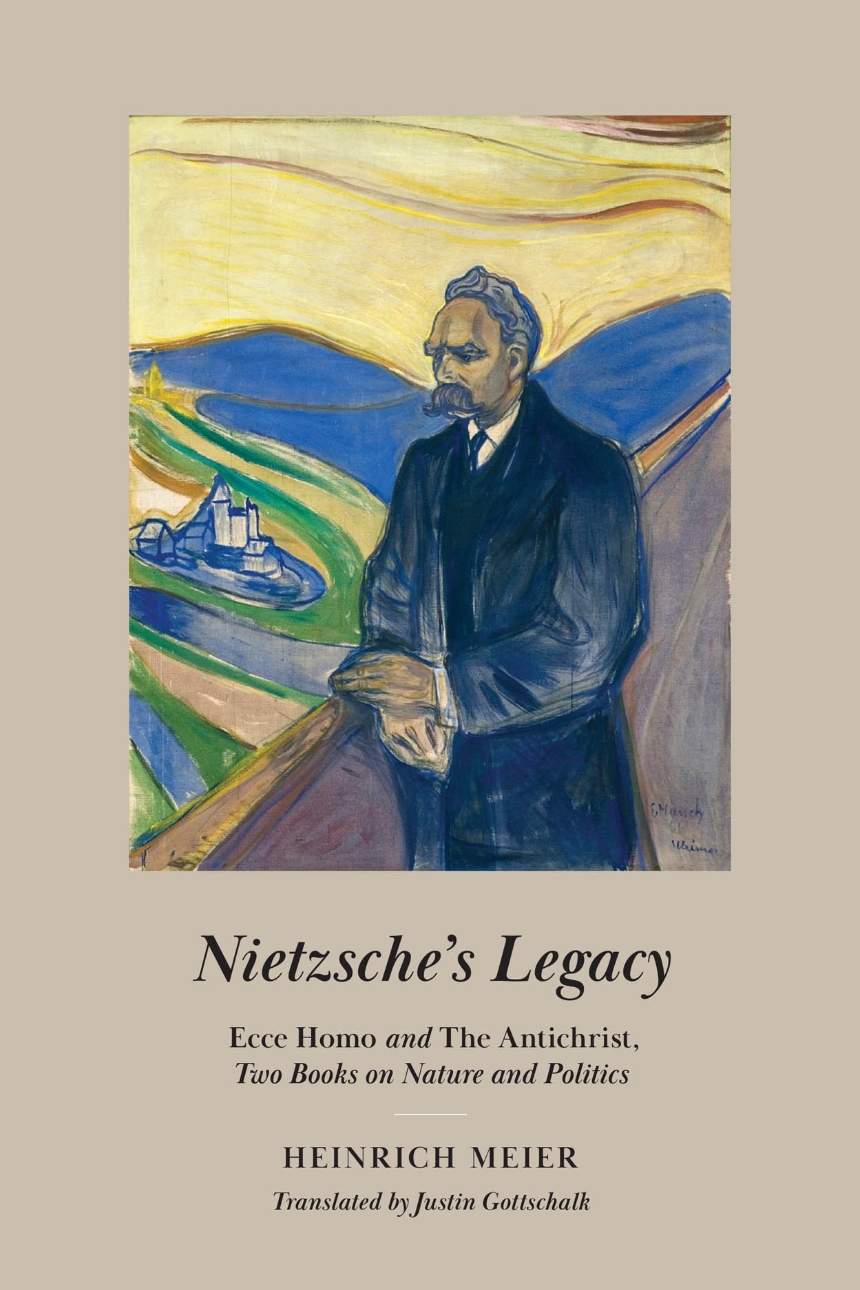Nietzsche’s Legacy
"Ecce Homo" and "The Antichrist," Two Books on Nature and Politics
Nietzsche’s Legacy
"Ecce Homo" and "The Antichrist," Two Books on Nature and Politics
A reappraisal of Ecce Homo and The Antichrist within Nietzsche’s oeuvre.
Nietzsche's Legacy takes on the most challenging and misunderstood works in Nietzsche’s oeuvre to illuminate his view of what a philosopher is and what constitutes a philosophic life. Interpreting Ecce Homo and The Antichrist as twin books meant to replace the abandoned Will to Power project, Heinrich Meier recovers them from the stigma of Nietzsche’s late mental collapse, showing that these works are, above all, a lucid self-assessment. The carefully written pair contains both the highest affirmation—the Yes of the “revaluation of all values”—and the most resolute negation—the No to Christianity. How the Yes and the No go together, how the relation between nature and politics is to be determined, how Nietzsche’s intention is governing the political-philosophical double-face: this is the subject of Nietzsche’s Legacy, which opens up a new understanding of Nietzsche’s philosophy as a whole.
288 pages | 6 x 9 | © 2024
Philosophy: History and Classic Works, Political Philosophy
Political Science: Classic Political Thought
Reviews
Table of Contents
Note on Citations
First Book. Nature and Politics I
Ecce Homo: How One Becomes What One Is
I. Life
II. Wisdom
III. Task
IV. Crisis
V. Knowledge
VI. Conflict
Second Book. Nature and Politics II
The Antichrist: Curse on Christianity
I. Friends
II. Enlightenment
III. History
IV. Faith
V. Rulership
VI. Enemies
Appendix. Twilight of the Idols, or, How One Philosophizes with the Hammer
The Philosopher among Nonphilosophers
